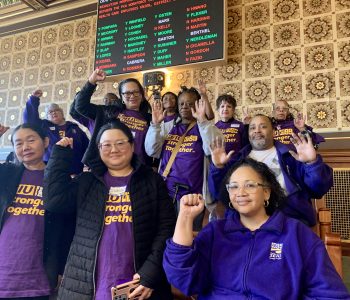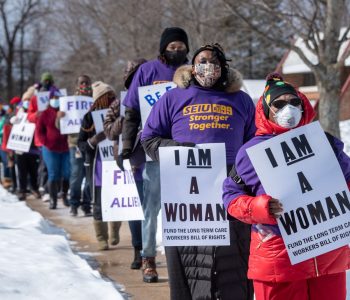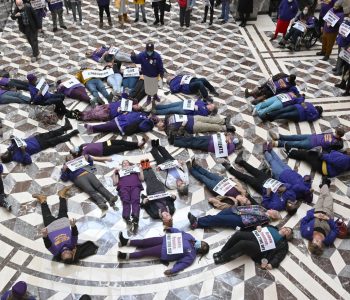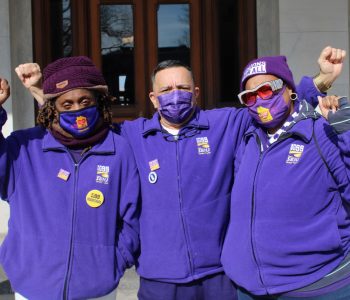by Lisa Backus | Mar 30, 2020 11:30am
If Lynda Frank gets sick while working as a home personal care aide, she’s caught between the threat of passing the illness to her clients or not getting paid.
“You don’t want to endanger yourself or the clients,” the fifty-something Bridgeport resident said. “If any of our home care workers get diagnosed with the coronavirus, I don’t know how they will get paid.”
Frank is among 10,000 home health aides in the state who care for elderly or disabled clients on a daily basis, allowing them to live at home by providing help with meals, hygiene and range-of-motion exercises.
The group faces difficult choices when it comes to protecting themselves and their clients. They receive none of the support that other healthcare workers have, such as free child care and overtime pay. And they have no sick or hazard pay.
Their union, SEIU Healthcare 1199NE, drafted a petition signed by 2,000 members seeking personal protection equipment such as gloves and masks. The union also asked for other measures that would make their job during the public health crisis safer. Without assistance, home care workers have to pay for their own PPE, or pass the cost on to their clients, who have limited resources.
So far, Gov. Ned Lamont has responded to only one of their issues — he agreed last week to supply 4,000 pairs of gloves and 4,000 masks, union Communications Director Pedro Zayas said.
“We are very grateful for the PPEs,” Zayas said. “But there are 6,000 consumers (clients) and some have two shifts of healthcare workers. It’s not even enough for every consumer.”
Many personal care aides work under state programs funded by the Department of Social Services and Department of Developmental Services. They are independent contractors who have no central workplace and must pay for their own supplies if clients can’t afford them.
Frank has some of her own gloves and masks and is happy that state officials will be supplying more, but she feels it shouldn’t have taken a public health crisis to get the protective equipment. “That should be ongoing,” she said. “We should always have gloves or face masks. That should be a common practice.”
The nature of the job requires close contact with clients who are unable to live independently without help. COVID-19, the disease caused by the coronavirus, is easily transmitted by close contact and can be deadly for the elderly or those with medical conditions.
Although Lamont agreed to the gloves, state officials have not yet agreed to give the workers, who must be in the homes of clients daily and who often work multiple jobs to make ends meet, any sick pay if they don’t feel well or if they fall ill with COVID-19.
“This is not a live-in situation,” Frank said. “We go home each night to our families, we have to be out in the community. But we are taking a chance going back and forth which is a risk but if we don’t work, we don’t get paid.”
Zayas said home health aides are the only health care workers in the state who lack sick time and hazard pay, which are important incentives to stay on the job serving a frontline function like grocery workers, childcare providers and delivery providers
“Grocery store workers are getting hazard pay, the state needs to consider that if they want to be competitive,” Zayas said. “These workers don’t get paid very much.”
The union also is asking that state officials guarantee timely payment of unemployment benefits as some clients are canceling due to concerns about exposure to the virus.
“Home health care is a great alternative to a nursing home,” Zayas said. “We need to make sure these workers can continue to do their work and be protected.”






